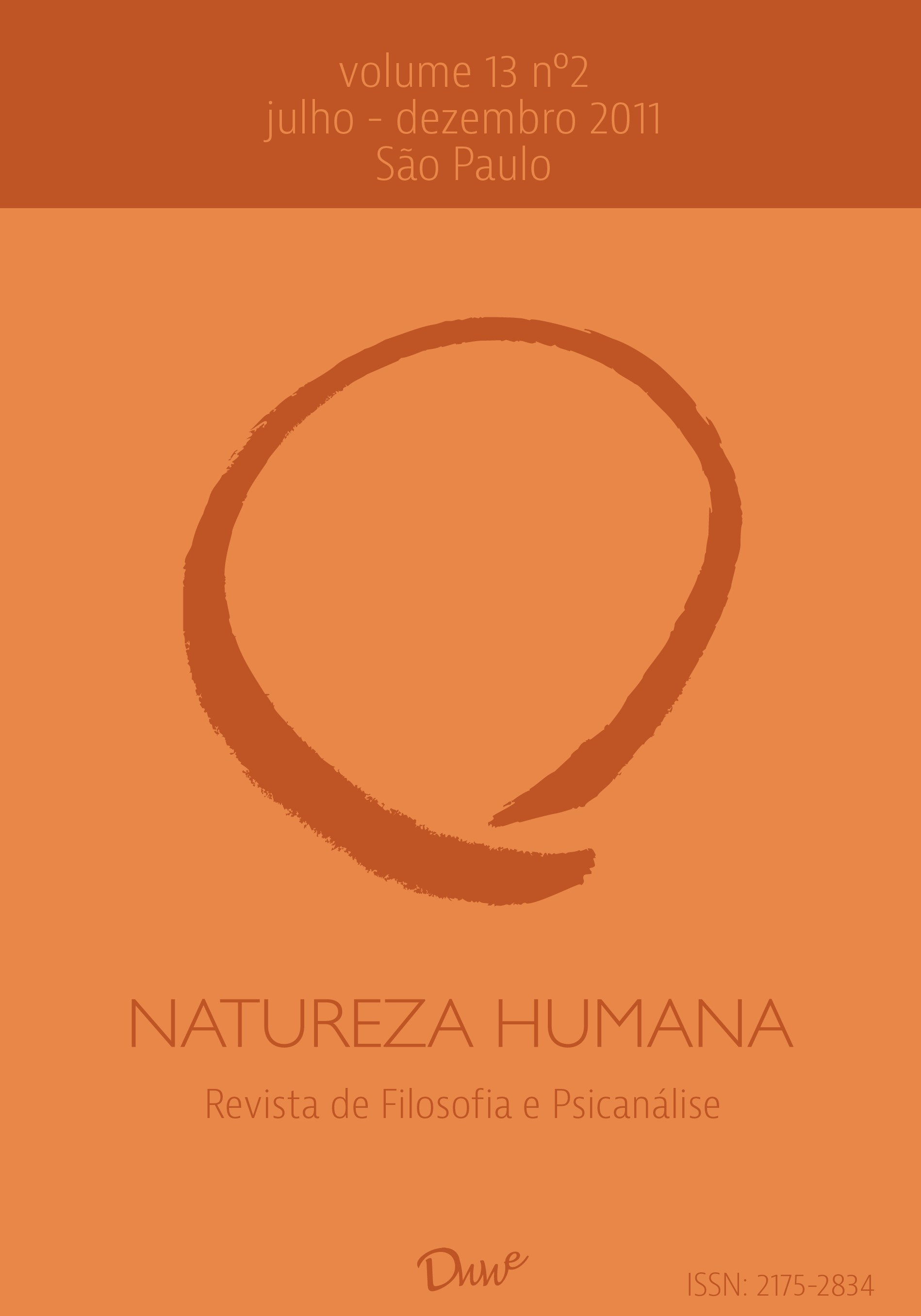Psychoanalysis, science ontologies and the thought of the existence
DOI:
https://doi.org/10.59539/2175-2834-v13n2-1033Keywords:
scientific ontology; philosophical ontology; psychoanalysis; individual ontology; social ontology.Abstract
Two questions articulated the thoughts contained in the present paper: what is the meaning of our life? And what senses generates the psychoanalysis? The juxtaposition of both questions must not give the idea that the answer to one serves as a basis to the other. The neighborhood aims here show how psychoanalysis makes meanings. The first question has been considered by some as a question without an answer. However, we believe that the possibility of a response depends on the philosophical context and what is meant by sense. What type of ontology is what makes possible this question? This work intends to make a contribution to the elaboration of this ontology, which will be presented primarily as a social ontology, as not regional but understood as first philosophy. To do this, we will take the social ontology developed from Heidegger and moving away from him, by Jean-Luc Nancy (2006) and McGuire and Tuchanska (2000). We will carry out a comparative study between these ontologies and scientific ontologies to show the necessity of a philosophical ontology that allows us to address the issue of the meaning. On the basis of this ontology we will deal with the possibility of answering this question by the psychoanalytic theory of Freud and of Winnicott.Downloads
Published
2024-10-02 — Updated on 2011-10-02
How to Cite
O. Minhot, L. (2011). Psychoanalysis, science ontologies and the thought of the existence. Human Nature - International Philosophy and Psychology Review, 13(2), 100–115. https://doi.org/10.59539/2175-2834-v13n2-1033
Issue
Section
Artigos








